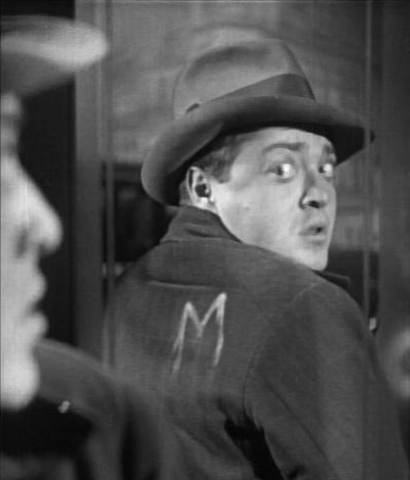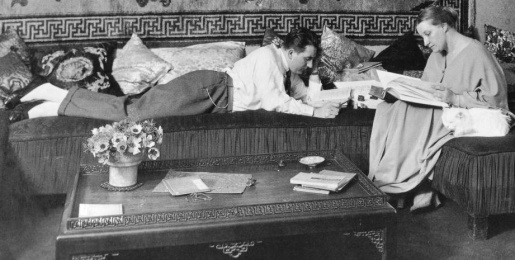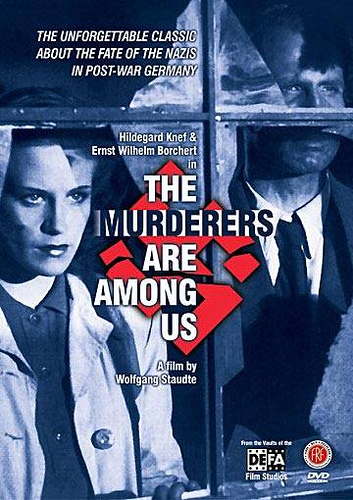Did Fritz Lang Change the Name of His Film “M” Due to Fear of Nazi Persecution?
Here is the latest in a series of examinations into urban legends about movies and whether they are true or false. Click here to view an archive of the movie urban legends featured so far.
MOVIE URBAN LEGEND: Fritz Lang changed the title of his film, M, because he thought it sounded better and not because of any fear of Nazi persecution.

M is Fritz Lang’s classic film noir story about a child murderer played by the great Peter Lorre (the film appears to be based on Peter Kürten, a real life child killer in Düsseldorf in the early 20th Century).

I won’t go into specifics, but let’s just say that there’s a significant scene involving an “M” in the film.
Well, originally, the film was going to be called Mörder unter uns, which in English roughly translates to “The Murderer Among Us.”
I was reading the other day where it was said:
Contrary to popular belief, Fritz Lang did not change the title from “The Murderers are [sic] Among Us” to “M” due to fear of persecution by the Nazis. He changed the title during filming, influenced by the scene where one of the criminals writes the letter on his hand. Lang thought “M” was a more interesting title.
I thought, “Wow, that’s interesting – I always thought that was the reason for the change.”
Well, is that true or not?
Fritz Lang (who was born in Vienna but lived and worked in Germany) actually left Germany in 1932 after his latest film, Das Testament des Dr. Mabuse (The Testament of Dr. Mabuse) was banned by the Nazis.
Interestingly enough, Lang’s wife at the time (they had been married since 1922), Thea von Harbou, eventually became a Nazi. They split when he left the country and officially divorced in 1933.

So Lang definitely had some issues with the Nazis (it did not help him that he had some Jewish ancestry), but at the same time, M IS a lot cooler of a title than The Murderer Among Us and the “M” in M is pretty darn significant, so I could believe that Lang made the change just because he thought it sounded better.
However, here’s Lang on the topic:
When I tried to make M in 1931 (its original title was The Murderer Among Us), I received menacing anonymous letters, and I was then told that the main studio at Staaken was off limits. “But why such an incomprehensible conspiracy against a film about a child killer in Düsseldorf?,” I asked the studio director. “Ah, I understand,” he said, and with a big smile, he gave me the keys to the studio. But I had already seen the Party insignia on the back. I then understood that the Nazis thought the title applied to them. When they found that the film was based on Peter Kürten, the killer of Dusselforf (whom I knew personally), they consented to let me make the film. The title had to be changed to M. for murderer.
That seems to be pretty much on point, right?
In an amusing sidenote, in 1946, after the war, filmmaker Wolfgang Staudte made a movie about how to deal with all the Nazis left in Germany after the war.
Its title?
Die Mörder sind unter uns, or in other words, The Murderers Are Among Us.

The legend is…
STATUS: I’m Going to Say False
Thanks to Barry Keith Grant’s Fritz Lang: Interviews (Conversations With Filmmakers) for the perfectly on point Fritz Lang quote!
Feel free (heck, I implore you!) to write in with your suggestions for future urban legends columns! My e-mail address is bcronin@legendsrevealed.com






I’m not sure how credible Lang is. He also claimed The Testament of Dr. Mabuse was banned as an anti-Nazi allegory, but the book The Strange Case of Dr. Mabuse shows pretty conclusively that ain’t true (it was banned because the government thought Mabuse’s subversive plans could be used by an anti-Nazi resistance). According to the book, he left Germany a lot later than some of his countrymen in the industry, so he may have felt the need to burnish his anti-Nazi cred.
“Mörder unter uns” doesn’t translate to “The Murderer Among Us”, but “Murderer Among Us”. There’s no German “Der” in the sentence, so there won’t be an English “The”.
Of course, the former may be its English title, but that doesn’t mean that is how it translates.
“Mörder unter uns” also means “Murderers (pural) among us”. that’s probably where the Nazis got it confused.